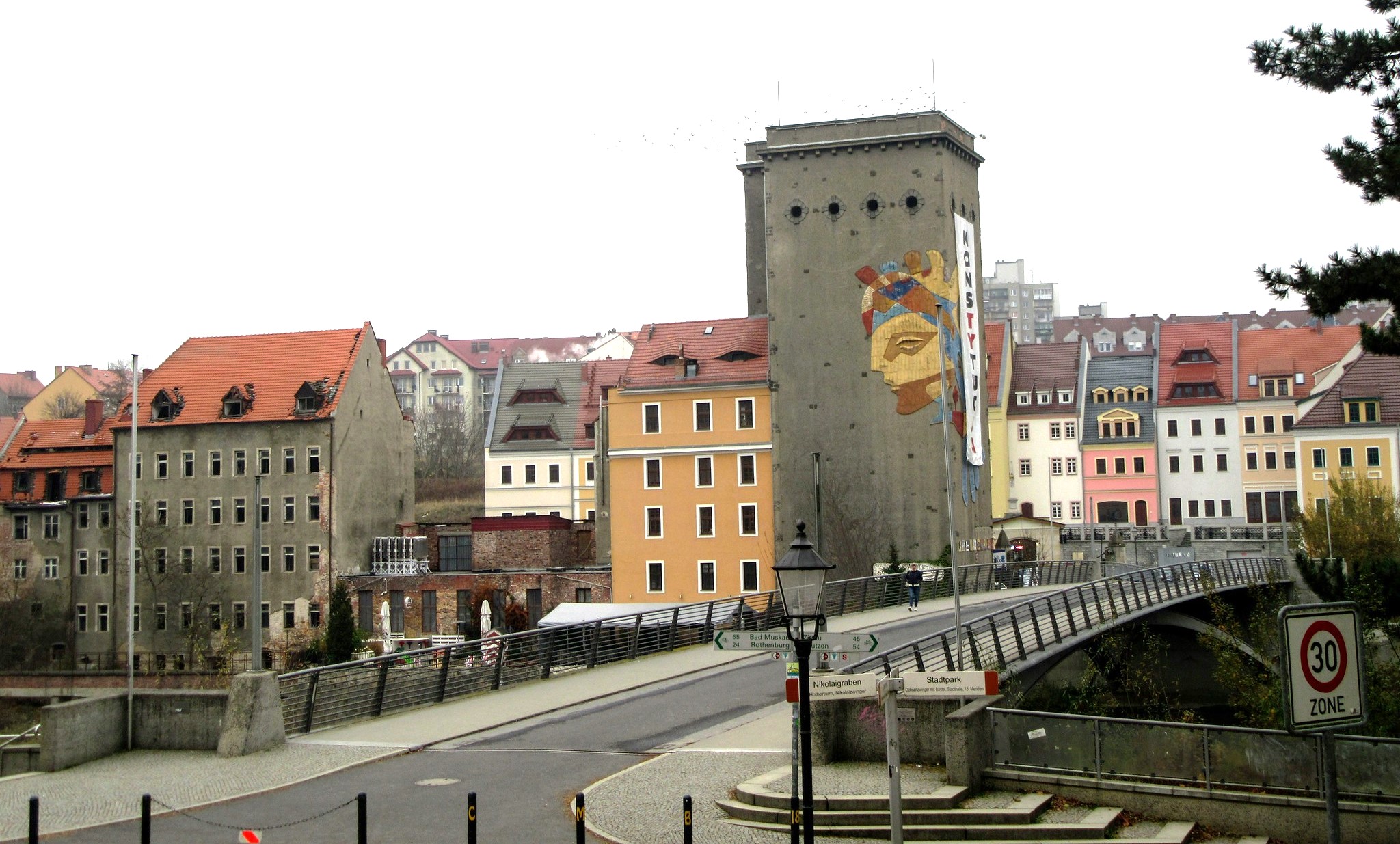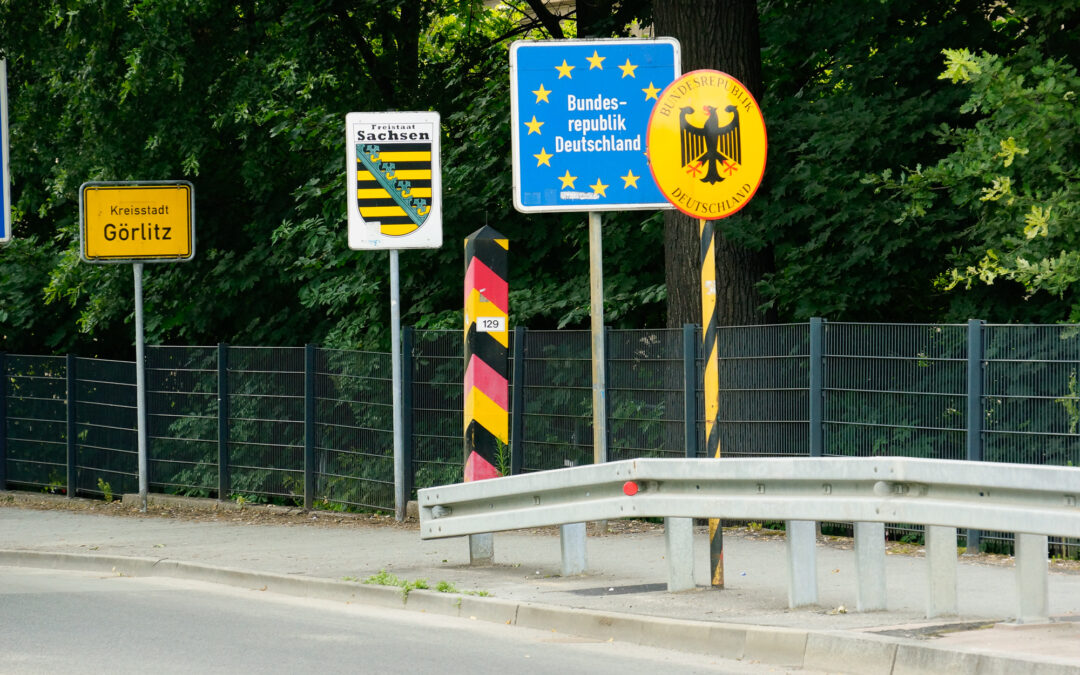Keep our news free from ads and paywalls by making a donation to support our work!

Notes from Poland is run by a small editorial team and is published by an independent, non-profit foundation that is funded through donations from our readers. We cannot do what we do without your support.
A Polish resident of a town on the border between Germany and Poland has filed a lawsuit against the German authorities for the border controls they have introduced. The measures are intended to prevent illegal immigration, but he says they violate free-movement rules.
“Through this lawsuit, I would like to show that EU citizens do not consent to the destruction of the achievements of almost 40 years of the Schengen Area,” said Jakub Wolinski, referring to the zone covering most of Europe, including Poland and Germany, in which border controls are theoretically abolished.
“We are guaranteed freedom of movement, but the ongoing controls have a disastrous impact on life in border regions,” Wolinski told Polish news website Wirtualna Polska. “This is an attack on the civil rights of residents.”
"Polak żyjący na pograniczu polsko-niemieckim miał dość nękania i utrudnień wywołanych kontrolami granicznymi wprowadzonymi przez niemiecką policję. Wynajął adwokata i podał do sądu Republikę Federalną Niemiec o naruszenie zapisów Kodeksu Schengen"https://t.co/umM0rYLuol
— Andrzej Krajewski (@AWMKrajewski) January 2, 2025
Wolinski lives in the German town of Görlitz but regularly travels to Zgorzelec in Poland, which lies immediately across the Lusatian Neisse River that marks the border between the two countries.
In normal times, that would involve quickly crossing a bridge between the two towns without any checks. But in October 2023, Germany introduced controls on its borders with Poland and the Czech Republic in response to increased crossings by irregular migrants from outside the EU through those countries.
In September 2024, Germany expanded those controls to its borders with all neighbouring countries, as Chancellor Olaf Scholz’s government felt increasing domestic pressure to clamp down on immigration.

A bridge between Görlitz and Zgorzelec, pictured in 2018 (image credit: amanderson2/Flickr, under CC BY 2.0)
Normally, border controls within the Schengen zone are not permitted. But they can be introduced “in the event of a serious threat to internal security”, notes the European Commission. However, this can only happen “as a last resort measure, in exceptional situations, and must respect the principle of proportionality”.
Wolinski, who says he now has to go through arduous border checks every day, believes that Germany’s actions do not meet these legal requirements. He also claims to have faced “harassment” by the German police who carry out the checks.
With the help of a lawyer in Berlin, he has filed a case at the administrative court in Dresden against the Federal Republic of Germany and the regional branch of the federal police.
“Due to the negative and generally unfriendly tone of communication with German [state] offices, my attorney and I came to the conclusion that the only option left for us is to take legal action,” he told Wirtualna Polska.
Poland’s government has also expressed frustration at Germany’s border controls, with Prime Minister Donald Tusk calling them “unacceptable” last year. But Wolinski believes that Warsaw has, in practice, done nothing to prevent them.
“I am surprised by the lack of reaction from the governments of neighbouring countries, because they could easily take the German federal government to the Court of Justice of the European Union and demand penalties,” he said.
“In Zgorzelec, but probably also in Słubice and other [Polish] border towns, we will not forget this inaction of the current [Polish] government,” added Wolinski.
Polish Prime Minister @donaldtusk has criticised Germany's "unacceptable" decision to reinstate controls on all of its borders.
He says Poland will seek "urgent consultations" at the EU level with other affected countries https://t.co/jvGJng2biN
— Notes from Poland 🇵🇱 (@notesfrompoland) September 10, 2024
Meanwhile, Germany’s government is planning to further extend its border controls, which are currently due to expire in March 2025.
In an interview with the Augsburger Allgemeine newspaper this week, federal home affairs minister Nancy Faeser said that extending the measures would be necessary “until the protection of the EU’s external borders is clearly strengthened”.
She said that the border controls and other measures “are having an effect”, with “approximately 1,800 smugglers arrested and around 40,000 people turned away at the borders”.
Germany has so far this year sent back over 4,600 people to Poland who attempted to illegally enter the country across the Polish border.
Around half of them were Ukrainian, with the next largest national groups being Syrians and Afghans https://t.co/TIbHDzGk7A
— Notes from Poland 🇵🇱 (@notesfrompoland) June 27, 2024
In June 2024, the German federal police revealed that, in the year up to that point, they had sent back over 4,600 people to Poland who attempted to illegally enter Germany. Around half of them were Ukrainian, with the next largest national groups being Syrians and Afghans.
Since 2021, many of the irregular migrants arriving in Germany have first entered the EU across Poland’s border with Belarus, whose authorities have encouraged and helped them to cross.
Poland has itself taken tough measures to prevent such arrivals, including building a physical and electronic barrier along the border and, more recently, relaxing rules on the use of firearms by officers at the border and proposing to suspend the right to apply for asylum.
Poland's government has approved tougher new migration rules intended to "take back control" of borders, including by suspending the right to claim asylum.
"We have launched a ruthless fight against illegal immigration," said Prime Minister @donaldtusk https://t.co/RSTP293oRb
— Notes from Poland 🇵🇱 (@notesfrompoland) December 18, 2024

Notes from Poland is run by a small editorial team and published by an independent, non-profit foundation that is funded through donations from our readers. We cannot do what we do without your support.
All image credits: Adam Kliczek, http://memoriesstay.com (under CC-BY-SA-3.0)

Daniel Tilles is editor-in-chief of Notes from Poland. He has written on Polish affairs for a wide range of publications, including Foreign Policy, POLITICO Europe, EUobserver and Dziennik Gazeta Prawna.



















